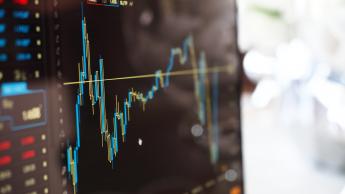Ask an Expert: Why is everyone talking about the stock market and GameStop?

What do videogame retailer GameStop, a Reddit thread, and the stock market have in common? Though the three things would have seemed unrelated just weeks ago, they’ve woven together in a story of democratized finance and investment volatility — and they’re stirring fresh conversation around financial regulation.
Individual investors, united by Reddit, banded together when they realized that hedge funds were trying to drive down the price of GameStop stocks for a quick profit — a move that would normally go unnoticed— and they worked together to upend the process. Sharp jolts in trading have meant multi-million-dollar gains for some and losses for others, catching the attention of national media, financial managers and government regulators alike.

Cal Poly News talked to Ziemowit Bednarek, associate professor and Finance Area chair in Cal Poly’s Orfalea College of Business, to explain what’s so interesting about this confluence of technology, media and finance.
Can you explain what’s transpired in the stock market in recent weeks?
Investors buy stocks when their prospects are good, and short, or sell, stocks when stock prices are likely to decline. If a big player puts in short orders, which are effectively bets on the stock going down, it has a potential to drive the stock price down. Kind of like a self-fulfilling prophecy.
Alternatively, if a lot of small retail (individual) investors with a substantial combined purchasing power place buy orders, there is a potential to drive the stock price up.
In the case of Gamestop, a large number of retail investors organized through one of the forums on Reddit and effectively beat a few hedge funds at their own game by bidding up Gamestop stock price.
Short sellers lose money when the stock price goes up. One of the hedge funds involved in short selling Gamestop had to obtain emergency funding to cover their short positions.
Why do you think this is catching attention now?
Gamestop headlines are attention grabbing because, to many people, it looks like a feel-good David and Goliath story. I think people need good stories now more than ever.
What’s being left out of the stories that you think is important to share?
While I think people see the case of Gamestop as a good thing, there is another side to this story. Due to extreme volatility, a substantial part of retail investors who participated in this feeding frenzy may have incurred losses as well.
Standard finance theory tells us to diversify risks by holding a large number of positions in different asset classes. Here, a lot of people engaged in trading on a margin, essentially borrowing money anticipating gains but exposing themselves to high risk.
Is this type of coordinated investing a surprise, or has activity like this been a long time coming?
You can think of this situation as a consequence of the proliferation of technology and democratization of the financial markets. The combination of social media and zero-cost trading platforms like Robinhood enabled a number of small players with a lot of conviction to self-organize and effectively obtain a substantial market power.
Before the era of YouTube, Reddit, and Robinhood, such a phenomenon would have been effectively impossible. I am not surprised that this happened, but I am surprised that we had not observed such events more often in recent years.
Do you think this is going to change how investors operate in the future?
The gravity of this situation grabbed the attention of the financial regulator (SEC), not just popular press. Robinhood put a pause on retail orders for a number of stocks as it (Robinhood) ran out of money to facilitate these transactions. Some people misinterpreted that as blocking retail investors and taking sides. The platform needed to obtain emergency funding to clear existing orders from a large Wall Street investor. Ironically, Robinhood was marketed as an alternative to Wall Street investing.
I am not sure what, if any, changes this situation will cause in terms of financial regulations. It is quite prevalent for the regulations to lag way behind the technology. Think of bitcoin. Of course, there is a good reason for that. Technology evolves and the cost of new regulations is simply too high to enact any changes too frequently.
In the near future, hedge funds and other institutional players will adjust their investment strategy to account for the possibility, however low, of such an organized market move erasing their gains.
Top image courtesy of Les Finances.



